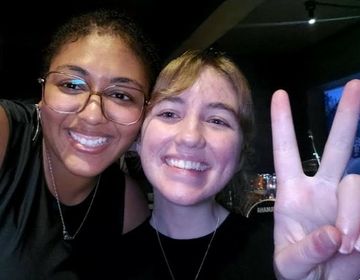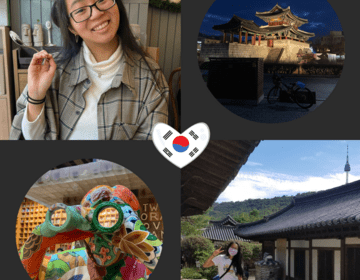How To: Learning Korean While Teaching Abroad
There are countless reasons to learn the local language when living in a new country. Befriending locals and better understanding the nuances of the culture are just a few of the many benefits. So if you’re at all curious about living in another country, I highly recommend studying as soon as possible. Everyone’s language learning experiences differ, but regardless of skill level, below are tips and resources that can guide you through the learning process.
Consistency
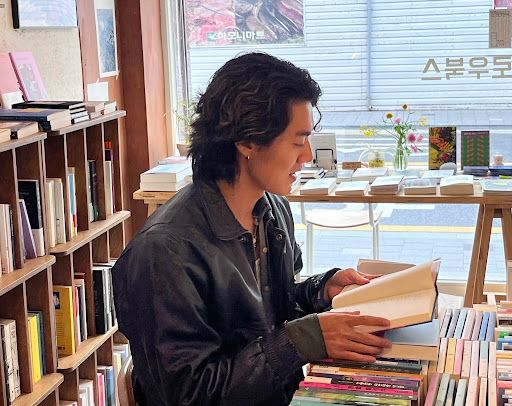
Above all else, the key to developing language skills is consistency. As with any skill, setting aside time every day dedicated to improving is always the best method. Before coming to Korea, I learned ten new words daily using the Anki spaced repetition app. While I wished I had also practiced speaking and did more textbook learning, the time I spent memorizing vocab still paid off. I was surprised by how much I could understand, and felt satisfied every time I heard words I had just learned. I continue to learn new vocabulary daily, but have decreased the amount and am instead allocating more time to work on my production (speaking and writing). Regardless of the strategy you choose, it is imperative that you create a consistent routine and stick to it.
Language Tutor
While a language tutor is not necessary, they can be an extremely helpful guide. A tutor will help you identify your goals with language learning and offer practical steps to achieve them. For instance, when I first started working with my tutor last September, I simply wanted to work on speaking production. Because I was afraid of making mistakes, my speaking was far less developed than my listening skills. The sessions with my tutor offered a space where I could talk in Korean and make mistakes freely. She was extremely constructive in her corrections and my confidence grew over time. Compared to six months ago, I now speak far more comfortably (despite still making many mistakes..). Recently, my goal for Korean has changed. I now plan on taking the TOPIK (Test of Proficiency in Korean) exam in June, so my sessions have changed to focus on the test material.
If you are looking for a tutor, finding the right one can be challenging. Friends of mine in Korea have found local tutors to meet with weekly. But since I live in the countryside, it can be inconvenient to meet tutors in person, so I found mine online on iTalki. While there are other websites to find language tutors, I found that iTalki had many Korean tutors of various backgrounds, teaching styles, and price points. If you are not able to afford a 1-on-1 tutor, finding a language class may be the best option. EPIK did offer a Pre-Orientation language course that covered the basics necessary to get by in Korea. However, I believe that real time feedback is most beneficial, so I recommend looking for a tutor and am confident that you will find one to match your needs on iTalki.
Independent Studying
Vocabulary, textbook learning, and listening are basic components of independent language learning. I recommend using the resources outlined below as soon and consistently as possible to further your language skills.
Vocabulary
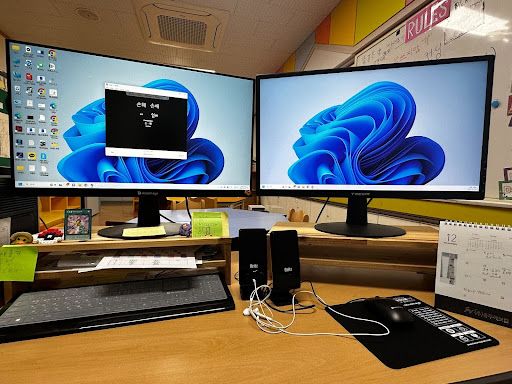
Prioritize vocabulary. A former Korean professor once told me if all else fails, vocabulary is most important for communication–even with broken grammar, knowing vocabulary can carry you through a conversation. While there are many ways to memorize vocabulary, I highly recommend the spaced repetition learning technique. Spaced repetition is a studying method that shows newer and difficult flashcards more frequently, and older and easier ones less frequently. I’ve been using a spaced repetition app called Anki for almost a year now. Anki automates the process, showing me words I learned yesterday, a week ago, or when I just started. It has helped me to retain thousands of words! If you are unsure about spaced repetition, Anki offers its services for free on the computer and if you think it will help you learn, I recommend buying the app.
Textbook
While textbook learning does not work for everyone, it has helped me to group vocabulary words and phrases by topic, learn new grammar points, and keep track of my progress. We’ve all studied out of textbooks before, so I will simply share this resource for free online Korean textbooks: King Sejong Institute Korean. After opening the link, first click on 'Learning,' then 'Textbooks,' next 'King Sejong Institute Korean (former Cyber Korean),' and finally select the textbook that matches your proficiency level. This free resource has textbooks, workbooks, and grammar documents! You should be able to find any textbook materials you need here.
Reading
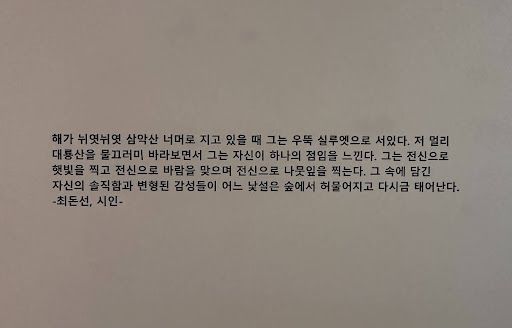
Reading practice can be done anywhere. When I walk around, ride the bus, or am waiting in a restaurant, I try to read the signs around me. I don’t always read for understanding, but to simply familiarize myself with new words, sounds, and the alphabet. Since I’m working at an Elementary school, I also read some of the children's books. These feature words or phrases that don’t show up in the textbook which prove useful when the students speak in Korean since they often use these words more than the formal vocabulary taught in textbooks. Reading is likely the easiest skill to practice independently, and I recommend reading aloud when possible.
Listening
Practicing listening skills independently can be challenging, but there are still several ways to practice independently; for instance, TV shows and music. When I first moved to Korea, I rewatched old K-dramas I had previously watched with English subtitles, but this time with Korean subtitles. Because I already knew the plot line and characters, it was easy to follow along and fill in the gaps of words, conversations, or scenes I didn’t fully grasp. Watching with Korean subtitles also helps me apply the vocabulary and grammar I learned, and offers some reading practice as well.
Music is another effective way to learn words or phrases. While some songs’ lyrics can be abstract, others have phrases that repeat. These phrases can easily be learned after listening just a few times. While listening skills can be improved independently, conversations with native speakers is the best form of practice.
Speaking

Other than with a tutor, the best way to practice speaking is with native speakers. This can be embarrassing, at times, since they won’t always understand you. Or even if they do, it can sound awkward. But I highly recommend trying regardless of skill level, since the only way to improve speaking is by doing it! You can practice with workers in a store, Korean co-teachers, or friends. Luckily, the elementary school teachers are patient, understanding, and encouraging when I speak with them, so I get to practice nearly every day. After speaking more and more, I’ve identified the people with whom I communicate most comfortably without burdening the other person. This used to be the nurse, who drove me home every day last semester. Since she could speak English as well, we comfortably switched between languages when, for instance, my Korean was insufficient. In general, it’s essential to make the most of the opportunity to speak the language of a foreign country. But don’t focus on speaking skills; instead, try your best to connect with the other person by using the language skills you are learning–this will lead to fulfilling conversations and lasting connections!
Final Thoughts
Language learning is a lifelong journey. This may be discouraging, but as long as you invest the time and are consistent, the improvements will follow. I’ve found that vocabulary and having the confidence to speak (incorrectly) are the most important parts of getting by in a new country. So take advantage of the unique opportunity of living in a different country by meeting new people and trying out the new words and phrases you learn. Accept that making mistakes is part of the learning process, and have fun with it!
Related Posts
How to Go to the Doctor in South Korea as an English Teacher: A Guide to Healthcare and Health Insurance
As an English teacher in South Korea, maintaining good health is essential while living abroad. Navigating the healthcare system can seem daunting and stressful at first, especially if you can’t... keep reading
CIEE CHINGU – A Partner Program for Teachers in Korea
Chingu ( 친구 ) is the Korean word for friend . CIEE Chingu is a partner program included in CIEE’s Teach in South Korea programs! Our goal is to connect... keep reading
TWICE with CIEE: Kayleigh in Korea (PART 1)
Kayleigh is a CIEE alum who participated in CIEE's Teach in South Korea program AND CIEE’s Teach in Spain Volunteer program! CLICK HERE to read her experience in Spain. WHY... keep reading


